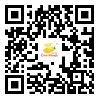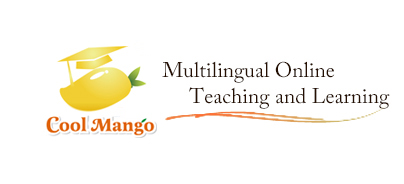
The TOEFL iBT test is divided into four sections, each with a full score of 30 points for a total score of 120 points. The scoring method and ability of each section are as follows:
1. Reading (Reading)
Number of questions: 3-4 articles, about 10 questions per article, a total of 30-40 questions.
Evaluation method:
Each question is worth 1 point for correct answer, 0 points for wrong answer or no answer. The original score is converted to standard score (0-30 points).
Scores reflect the ability of candidates to understand academic articles, including vocabulary, details, reasoning, structure, etc.
Ability description:
Low score (0-14 points): Difficulty in understanding academic vocabulary and complex sentences, unable to grasp the main idea of the article.
Medium (15-21 points): Can understand basic content, but have difficulty with complex paragraphs or reasoning questions.
High score (22-30 points): able to efficiently understand difficult academic articles and accurately analyze details and logical relationships.
Number of questions: 3-4 lectures (6 questions per lecture) + 2-3 dialogues (5 questions per dialogue), a total of 34-51 questions.
Evaluation method:
Each question is worth 1 point, and the original score is converted to a standard score (0-30).
Scores reflect a candidate's ability to understand academic lectures, classroom discussions and everyday conversations, including themes, details, attitudes and reasoning.
Ability description:
Low scores (0-14): Difficulty in capturing key information and understanding accents or complex content.
Medium (15-21 points): Can understand basic content, but lacks understanding of details or implicit information in long lectures.
High score (22-30 points): able to easily understand all kinds of academic and daily listening materials, and accurately capture details and logical relationships.
Number of questions: 6 questions (2 independent tasks + 4 comprehensive tasks).
Evaluation method:
Each question is scored by the examiner according to **Delivery (expression), Language Use (language use), Topic Development (content development)** three criteria, with a full score of 4 points for each item, and the final standard score (0-30 points) is converted.
Ability description:
Low score (0-17 points): incoherent expression, many grammatical errors, disorganized content, difficult to convey effective information.
Medium (18-23 points): The expression is basically clear, there are some grammatical errors, the content is not fully developed, but the core ideas can be conveyed.
High score (24-30 points): fluent and natural expression, accurate grammar, strict logic, able to fully develop the point of view and flexible use of vocabulary.
Number of questions: 2 (1 integrated writing + 1 independent writing).
Evaluation method:
Comprehensive writing: Based on the ability to understand and integrate reading and listening materials, the full score is 5 points, which are converted into standard scores (0-30 points).
Independent writing: scored on the basis of clarity of opinion, adequacy of argument and accuracy of language, with a full score of 5 points, converted to standard scores (0-30 points).
Ability description:
Low score (0-20 points): the argument is vague, the argument is weak, there are frequent grammatical errors, and the content is incoherent.
Medium (21-27 points): The argument is clear and well supported, but there are a few grammatical or logical flaws.
High score (28-30 points): clear argument, rigorous argument, accurate and fluent language, reasonable structure, and can effectively express complex ideas.
The different ranges of TOEFL total score (120 points) correspond to different English levels and practical application scenarios:
Total score range | Ability description | Common uses |
0-31 points | The basic English is weak, which makes it difficult to deal with daily communication or academic situations. | You need to start with basic English and do not meet the requirements for studying abroad or academic purposes. |
Scored 32-61 | Basic communication skills, but limited performance in complex scenarios. | Entry requirements for some community colleges or language courses are suitable for beginners in English. |
62-78 points | Can communicate on a daily basis, but there are still significant barriers in academic Settings (e.g., classroom discussions, academic writing). | The minimum language requirement for some undergraduate institutions (non-top institutions) may require a language course. |
79-93 points | Have basic academic English ability, can understand classroom content and complete basic homework, but still need to improve complex tasks. | The admission threshold for most public universities and the minimum requirements for some master's programs (such as non-English majors). |
Scored 94-109 | Strong English skills to cope with most academic situations, including discussions, writing papers and complex reading. | Top undergraduate or master's programs (such as the top 50 universities in the United States) have higher admission scores, and some majors (such as liberal arts) require higher admission scores. |
110-120 points | Close to native language level, able to efficiently handle difficult academic tasks, and use the language accurately and freely. | Top schools (such as the Ivy League) or English majors are ideal for students who want to excel academically. |
Top U.S. universities (such as Harvard and MIT) typically require a total score of 105+ with no less than 23 points in each category.
Universities in the UK, Canada and other countries may accept a total score of 90+, but pay more attention to individual items (such as writing at least 25 points).
2. The importance of individual scores: Some majors (such as business and media) have higher requirements for oral or writing scores (such as oral score of at least 26), which need to be improved according to the key points of the target major.
Non-iBT scores: The TOEFL paper-and-pencil test (PBT) has a total score range of 310-677, and the computer-based test (CBT) has a total score range of 200-300. However, the iBT is currently the mainstream, so it is recommended to prepare for the online test first.

Cool Mango focuses on the online language teaching and learning with all foreign teachers for multiple languages. It aims to popularize online language teaching and learning globally, recruit and train professional teachers worldwide, and create the unique Cool Mango teaching method. It builds an efficient language learning mode and environment with real teaching by native foreign teachers and real-time translation assistance of AI, providing high-quality online language courses and online communication platform for everyone.
 |
  |
  |
Copyright © Cool Mango Co. Ltd. All Rights Reserved. / Privacy Statement / User-agreement











